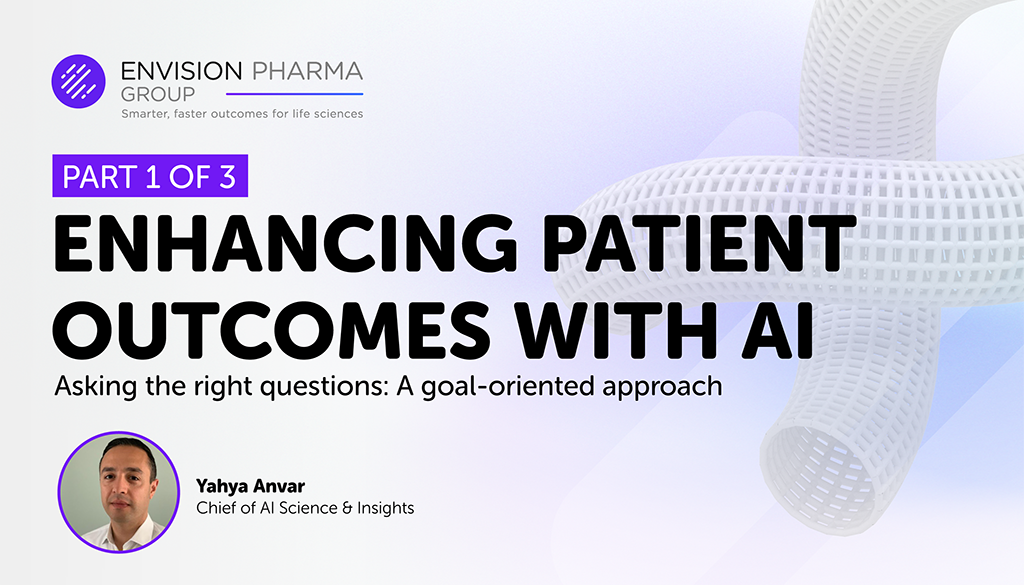This is the first part of a three-part series from OKRA.ai Chief of AI Science & Insights, Yahya Anvar
Artificial intelligence (AI) is redefining the future of medical affairs in the life sciences industry, setting the stage for a new paradigm of research, development, and patient care. At Envision Pharma Group, we have embraced and will continue to uphold this shift, not solely by adopting technology, but by strategically aligning it with our mission – smarter, faster outcomes for life sciences.

In the quest to revolutionize healthcare and enhance patient outcomes with AI, it’s important to remember that people don’t buy technology; they pursue better outcomes. In the pursuit of better outcomes, there is a strong emphasis on the importance of having a goal-oriented approach to AI implementation. It's not merely about deploying the most advanced technologies, but rather carefully selecting and applying this technology to achieve your desired outcomes most effectively.
A 2021 study published in Nature Medicine underscores the transformative potential of AI in enhancing patient care, by demonstrating that AI could predict the effectiveness of immunotherapy in melanoma patients with up to 80% accuracy, significantly higher than traditional methods. The results emphasize the critical role of innovative technologies in advancing medical outcomes and enforce the principle that the value of technology in healthcare lies not in its novelty, but in its ability to improve patient outcomes. For effective AI implementation, manufacturers and healthcare providers must focus beyond technological advancements and improvements and home in on its tangible impacts on treatment efficacy and patient care.
Enhancing patient outcomes with AI begins with clarity of vision and goals. Drawing inspiration from the monumental task of putting a man on the moon, we must first define our "moonshot" in healthcare. What are the exact outcomes we aim to achieve? Once the goals are clear – improving medication adherence, enabling personalized treatment plans, or enhancing the efficiency of medical teams – the next step is to determine the appropriate technology to bring these goals to fruition.
Equally pivotal is the evolving role of medical science liaisons (MSLs) and their integration with medical intelligence and data. The scientific insights that MSLs specialize in collecting are the backbone of our integrated evidence plan and product strategy. They help us align our efforts with the healthcare community's medical and scientific needs, challenges, and concerns. In fact, MSLs are one of the life science professions that could benefit the most from AI.
A McKinsey report suggests that by 2030, AI will streamline many MSL functions, including scanning vast data sources to identify trends and design trials, streamlining the generation of evidence critical for development, real-world evidence, and health economics outcomes research. Additionally, AI is already empowering medical affairs to offer customized evidence packages through interactive dashboards, enhancing how healthcare professionals and patients interact with and understand medical data, thus significantly improving clinical decision-making and patient care outcomes.
Integrating AI into medical affairs underscores the necessity of a goal-oriented approach to healthcare innovation. We can significantly enhance patient care and treatment outcomes by setting clear, ambitious objectives, and strategically applying AI technologies. As illustrated by predictive successes in patient care and the optimization of medical strategies, the true measure of technology's value lies in its capacity to meet specific health goals, transforming the quest for better outcomes into a journey marked by precision, personalization, and profound impact on lives.